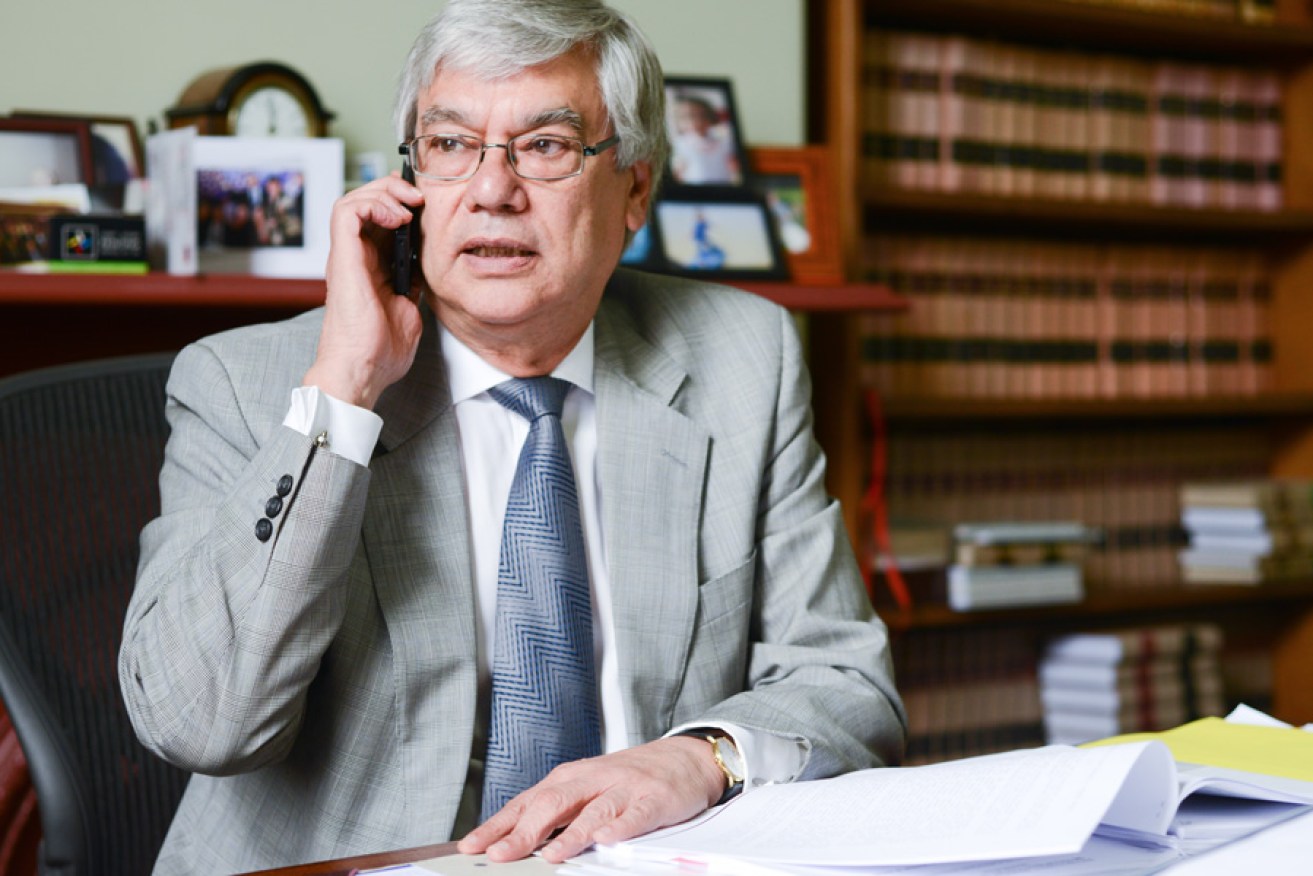Planning debate: Councils’ role up for grabs

Brian Hayes believes no planning system can completely remove community dissent. Photo: Nat Rogers/InDaily
Local councils’ role in planning is up for debate, with the lawyer conducting the State’s planning review saying he hasn’t formed a view on whether development approval should be taken away from them altogether.
State Planning Minister John Rau has already called for the review to consider removing councillors from development assessment panels because they brought “political sensitivities” to the process.
An expert panel led by top Queen’s Counsel Brian Hayes was appointed in February by the State Government to review planning and development legislation. The review is not considering government policy.
The panel is currently consulting with communities and stakeholders throughout the state.
Hayes told InDaily he had no view on the role of local councils in planning.
“Should it be a local government council, should it be a regional council, should it be an independent body, should it be a DAC (development assessment commission)? I haven’t got a view about them at the moment,” he said.
“Some councillors in the country, for example, say we’d rather not be in DAC, because we want to represent our constituents and we can’t if we’re on DAC, we’re compromised.”
Despite that, Hayes hinted his review would be evolutionary rather than revolutionary. He led the last state planning review and said the system was still functioning reasonably well.
Click to view some of the questions posed to the panel during the consultation process.
Local Government Association president David O’Loughlin said the current development application approval process worked well.
“Once again it would appear that the biggest issue for most Councils is the slow processing by the Minister and the Department of rezoning proposals by Councils,” he said.
“The change to the DAPs (development assessment panels) has led to a wide variety of views and it would be good for the panel to discuss with councils their concerns if any.
“There is a risk with the Minister’s suggestion of adopting a wholly independent panel that Councils may see the need to consider applications before full Council prior to them going to Independent Panel, this would add another unnecessary step to the process which few would be in favour of.”
Local councils are the key development body. Councillors set development plans which list the type and character of developments in the area.
Development assessment panels made up of councillors and independent members are then charged with assessing proposed developments against the development plan.
Proposals to amend development plans in the city’s inner suburbs have this year been met with vocal opposition from community groups.
The Coalition for Planning Reform, an organisation claiming to represent more than 120 community groups, has called for Hayes’s review to make the system more transparent and community-oriented and give greater consideration to sustainability.
“The current system seems geared towards fast-track ad hoc development that mostly fails to take account of both climate change and sustainability principles,” Conservation Council SA’s Professor Rob Fowler said in a statement issued on behalf of the CPR.
Hayes said even a perfect planning system wouldn’t stop community discontent about development.
However, getting people involved in the planning process earlier might reduce their surprise when developments are proposed near them.
“It’s always difficult to get the community galvanised,” Hayes said.
“They really only become interested when it’s next door to them. That’s human nature.
“So the challenge is to see whether we can galvanise that interest at an earlier stage.
“You’re never going to get people to agree with everything. My objective is not to necessarily get consensus on everything.
“But when you make a decision the community has been satisfied that the process has given them ample opportunity to have their say and they understand why you’ve made that decision.”
Urban Development Institute of SA executive director Terry Walsh called for reforms to limit community involvement on a per-development basis.
Rather, community consultation should inform the development plan which should then be left to independent experts to implement, he said.
The range of things allowed to be considered in an approval process should also be made less ambiguous and more objective.
“Those panels should be able to analyse what the local development plan is in an objective fashion,” Walsh said. “It should not be an emotive matter.”
The expert panel was considering the level at which communities should be involved, Hayes said.
“Should they have their greatest say at the policy level, the making of policy which affects them? Or should they have a say at that level or at some lower level say at the local government level policy making stage?
“And then should they have another say at the decision-making assessment stage?”
Shadow Planning Minister Vickie Chapman said the planning system needed to become more transparent and open to make it easier for the community to participate.
Although he hasn’t made up his mind on much of the system so far, Hayes said he was certain there was a case for simplifying certain elements, particularly development plans – which have grown to be far thicker documents since he conducted his last review.
The review will publish a progress report in December summarising the results of its community consultation.
An options paper will be published in May next year before the panel hands down its final report in August.




